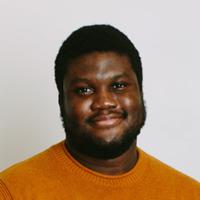Nearly 15 years after Sept. 11, and in one of the largest, most multicultural cities in Canada, Omar Mouallem began to experience Islamophobia.
The significant experiences happened in Edmonton during a period of general ambivalence about religions, he tells Minelle Mahtani in an October talk hosted by the Vancouver Public Library for Islamic History Month.
But Trumpism, the Harper administration’s “full-bigot” moment in the 2015 federal election campaign, the “toxification” of social media and the rise of ISIS and ISIS-inspired attacks gave social licence to those who harboured anti-Muslim sentiment, he said.
“I’m a straight, lighter-skinned dude, a second-generation Canadian, who walks about the world like he’s part of the mainstream, and yet I was experiencing these random acts of racism,” he said. “So I can’t imagine what it was like for immigrant people, for Muslim women who wear head scarves, for South Asian Muslims during that time.”
A major touchstone of the conversation was Mouallem’s book Praying to the West, a sprawling book in which he visits various mosques to learn about the history and influence of Islam and Muslims in the Americas. Mouallem also talked about his own personal journey and relationship with the religion in which he was raised in.
The author and filmmaker, who’s told stories with subjects ranging from Fort McMurray firefighters to mental health in the Alberta oilsands, and launched the Pandemic University Pop-up School of Writing last year, chatted with Mahtani, a former broadcast news journalist and currently an associate professor at the Institute for Social Justice at UBC.
The interview was supported by the City of Vancouver and the Centre for Comparative Muslim Studies at SFU.
“Islam was in the minds of some of the first people to come to this land, whether they were colonizing it, or whether they were working the land as enslaved Muslims and soon after indentured Indian labourers,” Mouallem says. “And so, whether they came from Africa or South Asia, or whether they came from Spain in the 1500s, Islam was a pretty important influence on their worldview.”
“If Islam was in their hearts and minds, if it was a part of their story, then those people who came to the Americas and started to shape it into what it is today, brought that Islamic history here with them, and therefore, Islamic history is American history and vice versa.”
Mouallem, who said he tries his best to always tell stories through “another set of eyes,” focused in this talk on the multifaceted human stories of Muslim people and communities in the Americas.
“I know that a lot of people expect, when they pick up a book like this... they want a take, they want a really strong take. But really, the only take I have to offer is that Islam and Muslim identity doesn’t look like one thing. It looks like a lot of things.”
He talks about visiting mosques like the one headed by a Nigerian imam in Salvador, Brazil; praying at the “radically inclusive, queer and feminist-led” El-Tawhid Juma Circle in Toronto; and meeting a survivor of the Quebec City mosque shooting, a horrific act of Islamophobic violence.
The writer also says he wanted the book to be respectful of Indigenous peoples and didn’t want to treat multiculturalism with an “over-celebratory tone” in it.
“Whether we like it or not, if we are immigrants, [if] we are not Indigenous peoples, then we are — or our ancestors are — agents in genocide,” he said. “That needs to be taken very seriously even when you’re talking about racialized, vulnerable, marginalized communities like Muslim communities.”
The two also chat about the intersections between race and religion, some of the community feedback for the book, how his non-Hafiza mother was his navigational guidance and why the book is a love letter to his parents and his family.
With such a meaty conversation filled with insights and laughter, it could easily have gone on for another hour. Heck, maybe these two will start a podcast someday. ![]()
Read more: Rights + Justice















Tyee Commenting Guidelines
Comments that violate guidelines risk being deleted, and violations may result in a temporary or permanent user ban. Maintain the spirit of good conversation to stay in the discussion.
*Please note The Tyee is not a forum for spreading misinformation about COVID-19, denying its existence or minimizing its risk to public health.
Do:
Do not: